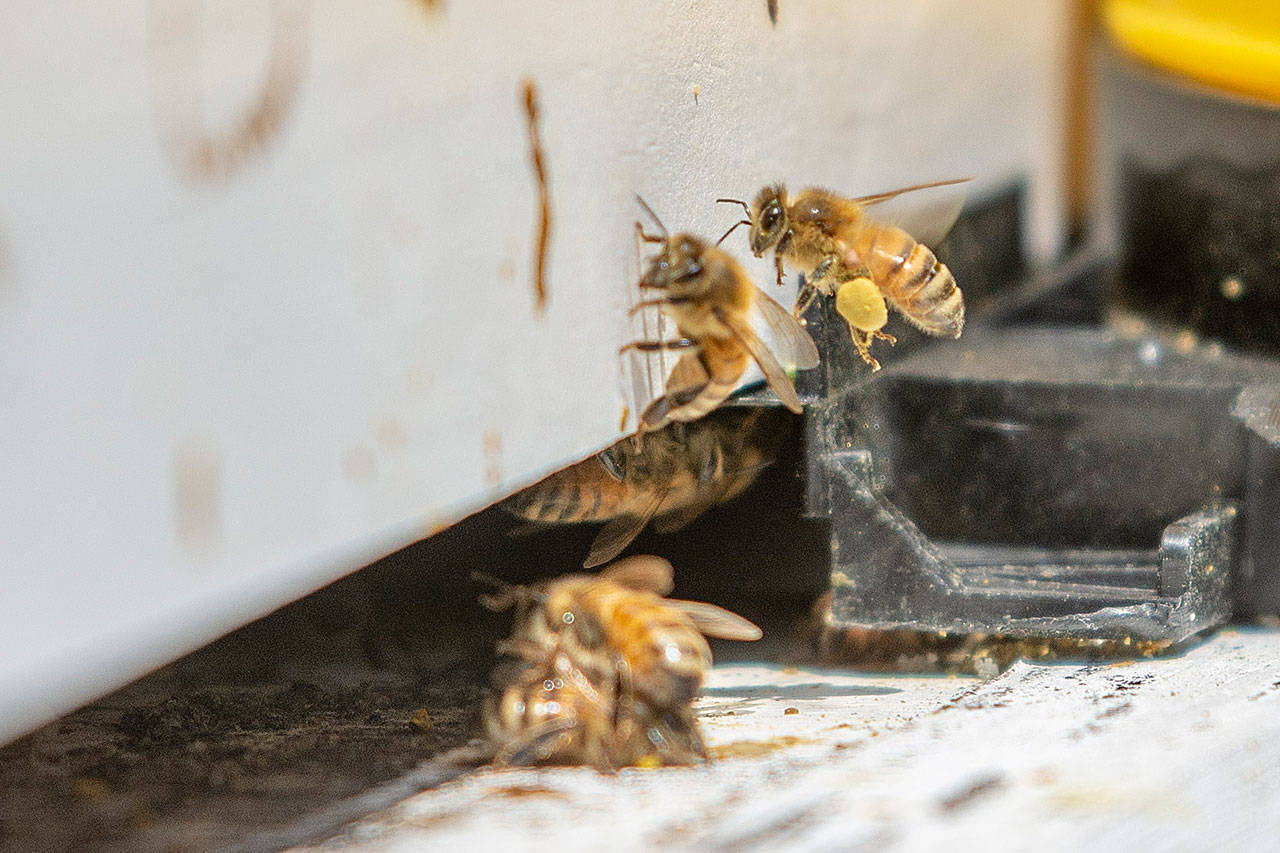CLALLAM BAY — Offenders at the Clallam Bay Corrections Center are doing their part to help declining bee populations and the environment.
Hundreds of inmates want into the prison’s beekeeping program, but right now there is room for only 13 people to work on their beekeeping certifications, said Faye Nicholas, classification counselor at the prison.
The program has a lasting effect not only on the environment, but also on the offenders, she said.
“The guys involved in the bee program have a reduction in infractions and negative behaviors because they have to maintain a certain standard to be part of the program,” she said.
“I don’t have enough space for every offender who wants to be part of the program because there are hundreds. They all want to play with bees.”
Jim, an inmate at the prison, helped as the program was first getting started. He has since been working laundry, but has become a resource for offenders working in the beekeeping program.
The Department of Corrections asked that last names of inmates not be used in this story.
Jim said he and other inmates introduced two 3-pound packages of bees to the prison. That’s about 10,000 bees per package.
He said inmates learn to treat bees for health issues and learn about everything that bees do. He said the prison has had up to four hives at once, but right now is down to one due to losing queens.
The impact the program has had on Jim and other inmates has been “really positive,” he said.
“Being able to take care of another being, a creature, gives you an intense sense of purpose,” Jim said. “There’s so much going on. Learning about bees and watching them thrive has been impactful in my life.”
Clallam Bay Corrections Center is one of 11 prisons across the state that has a beekeeping program. It is one of the prison system’s environmental sustainability programs run through a partnership with the Sustainability in Prisons Program.
Jim said there have been ideas for what to do with the honey, including finding places to sell it, but for now the honey has stayed within the facility.
“We gave some to the different people in the institution to give them a taste of what the bees created,” he said.
Nicholas said she would like to see the program grow. Her goal is for the prison to go into the winter with at least two hives, but as many as four. She hopes to eventually have 10 hives operating at once.
She said the chances of that happening are “slim,” but she remains hopeful.
“I’m not a beekeeper,” she said. “It started as a challenge and we just developed it from there. We found the time to be able to do it and develop a way to run classes.”
The program isn’t just about taking care of the hive, she said.
“It’s a whole education to become certified apprentice beekeepers,” she said. “They have to have so many classroom hours.”
She said in the two years of the program about 86 offenders have earned their certification.
“At the end of their graduation, if they are successful, they walk away as apprentice beekeepers,” shes aid. “They can become really successful at this and if they were to get out of prison they could find some way to turn it into an occupation if they wanted to.”
________
Reporter Jesse Major can be reached at 360-452-2345, ext. 56250, or at jmajor@peninsuladailynews.com.

